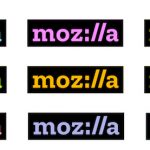Facebook is testing self-destructing friend requests

Facebook is currently testing a new feature that would give users the chance to place time limits on friend requests. The idea is that requests that you ignore for a certain period of time would be automatically deleted.
While it's not a feature that will be of interest to everyone, it is something that could prove useful to anyone in the public eye who gets bombarded with endless requests to connect. Facebook has confirmed that automatically-expiring friend requests give users a way to more easily manage unwanted requests from people.
Facebook rolls out locally-focused News Feed globally

Facebook is constantly messing about with its News Feed, and it's only a matter of weeks since the social network said it was going to prioritize local news. Initially, this was only the case in the US, but now the change is rolling out around the globe.
The company says that "people around the world will see more news on Facebook from local sources covering their current city and other cities they may care about." Unfortunately for Facebook, however, it's unlikely to serve as too much of a distraction from the call/SMS logging controversy or the Cambridge Analytica debacle.
Facebook places full-page ads in British and American newspapers to apologize for Cambridge Analytica data leak

Full-page advertisements have appeared in a number of Sunday newspapers in the UK and US as Facebook embarks on a damage limitation exercise following the revelations about Cambridge Analytica's use of personal data.
The ads, signed by Mark Zuckerberg, say: "We have a responsibility to protect your information. If we can't, we don't deserve it." The apology -- of sorts -- adopts a similar tone to Zuckerberg's previous statements and interviews about the matter, and comes as the social network faces calls for not only regulation, but also as the London offices of Cambridge Analytica have been raided by the Information Commissioner's Office.
Privacy: Facebook has been collecting call and text data from Android users

It has been a bad week for Facebook -- and its users -- after it was revealed that Cambridge Analytica had harvested data from millions of accounts on the social network. Now it turns out that Facebook itself has been engaged in gathering user data.
A social media user, Dylan McKay from New Zealand, downloaded his Facebook archive and was shocked to discover that nearly two years' worth of call and text logs from his Android phone were included. McKay is not alone, and it's possible that details of your communication have been logged as well.
Et tu, Tumblr? Blogging site says it was used by Russia to spread fake news in 2016
When it comes to talk of Russian interference in the 2016 US presidential election that saw Donald Trump catapulted to power, the focus has been very much on Facebook and Twitter. But now the blogging platform Tumblr has held its hand up and revealed that it was used by Russian trolls to disseminate disinformation and propaganda.
Tumblr says that it discovered a number of accounts that were used by Russia's Internet Research Agency (IRA), and that it helped with an investigation and prosecution of numerous individuals.
Instagram is tweaking its feed to make it a little more chronological

Following quite a vocal backlash from users, Instragram is making changes to its feed to move away slightly from the algorithm-driven, non-chronological form it takes at the moment.
Instagram -- like social media stable-mate Facebook -- has eschewed the chronological ordering of feeds, but now seems to have come to the realization that it is what people expect and prefer. The platform is also making changes to the automatic feed refresh function.
Mozilla pulls advertising from Facebook

Mozilla is not happy with Facebook. Not happy at all. Having already started a petition to try to force the social network to do more about user privacy, the company has now decided to withdraw its advertising from the platform.
The organization is voting with its money following the misuse of user data by Cambridge Analytica, as it tries to force Facebook into taking privacy more seriously.
Facebook reveals the steps it will take to avoid the next big data breach

After it was revealed that private data belonging to 50 million Facebook users was shared with data analytics company Cambridge Analytica, there has been much talk about what went wrong and how something similar can be avoided in the future. Mark Zuckerberg issued a non-apology, but Facebook has also indicated some of the things it will be doing in the wake of the fiasco.
Zuckerberg says that back in 2014, steps were taken to restrict the access apps have to data, and the social network also plans -- in the name of transparency -- to inform everyone who has been, or may have been, affected by the data breach. New tools are also on the way to give users greater control over apps, and to prevent abuse of Facebook and the data it holds.
Mark Zuckerberg's failure to apologize about the Cambridge Analytica privacy breach is despicable

After five days of complete silence, Mark Zuckerberg finally decided to face the music and talk about the Cambridge Analytica debacle which has seen the private information of more than 50 million Facebook users harvested by the data analytics company
Yesterday, the Facebook founder condescended to issue a statement about the privacy breach, and also appeared in a CNN interview. He was, of course, quick to point out that his company has already cleaned up its act and would be doing a lot more, including auditing apps and developers. So far, so face-saving. One thing he rather forgot about, however, was saying sorry to the hordes of people affected by the matter.
Mozilla launches a petition asking Facebook to do more for user privacy
In the fallout from the Cambridge Analytica debacle, Facebook has been roundly criticized for not only its handling of the situation, but also its attitude to privacy in general. The criticism comes not only from users, but also politicians and technology firms. The latest company to speak out is Mozilla.
After it was revealed that the personal data of 50 million Facebook users was shared without consent, Mozilla is calling on the social network to ensure that user privacy is protected by default, particularly when it comes to apps.
Facebook is introducing a way for creators to make money from their content

YouTube has become a huge money-making platform, not only for Google, but also for the creators who upload content. Now Facebook wants a piece of the action and is in the process of testing a couple of ways in which creators can monetize their content.
The idea sees Facebook giving creators the chance to offer subscription services to their fans. For $4.99 per month, subscribers can be granted access to exclusive content -- and Facebook won’t be taking a cut of the money.
Twitter to ban an array of cryptocurrency ads

Just a few days ago, it was revealed that Google plans to ban ads for cryptocurrencies and related products and services later this year. Now it seems as though Twitter could be following suit.
The plans could see the social network implementing a ban on ads for ICOs and almost all cryptocurrencies. It is reported that Twitter's ban could come into force within a couple of weeks.
Facebook suspends Trump campaign's data analytics team, Cambridge Analytica, for harvesting private information of 50 million users

Facebook has suffered what has been described as the social networks "biggest ever data breach" after Cambridge Analytica and its parent group Strategic Communication Laboratories (SCL) harvested data from more than 50 million users.
Cambridge Analytica is best known for its work with the Trump campaign for the 2016 election, and Facebook found that the company had violated it data privacy policies. The data was used as part of a "microtargeting" campaign to try to predict and influence voters' choices in the election.
Facebook algorithms went mad and threw up some weird -- and sexual -- search suggestions
Facebook has issued an apology after its search algorithms apparently went haywire and started to suggest a range of strange, and often NSFW, videos to users.
Throughout Thursday night into Friday morning, a range of bizarre search suggestions were displayed to anyone who started typing "video of". Some of the suggestions were offensive, and it didn't take long for screenshots to be shared on Twitter.
Facebook bans far-right group Britain First and its leaders for hate speech

In the latest part of its clean-up exercise, Facebook has removed pages of the far-right, anti-Islamic group Britain First. The social network has also closed down the pages of the leaders of the group -- well-known in the UK, and also brought to US attention after Donald Trump shared its tweets.
The ban is such that Britain First will not be able to create any pages in the future. Facebook says that the group has repeatedly violated rules against hate speech, and denies that the bans are an infringement of free speech.
Recent Headlines
Most Commented Stories
BetaNews, your source for breaking tech news, reviews, and in-depth reporting since 1998.
© 1998-2025 BetaNews, Inc. All Rights Reserved. About Us - Privacy Policy - Cookie Policy - Sitemap.